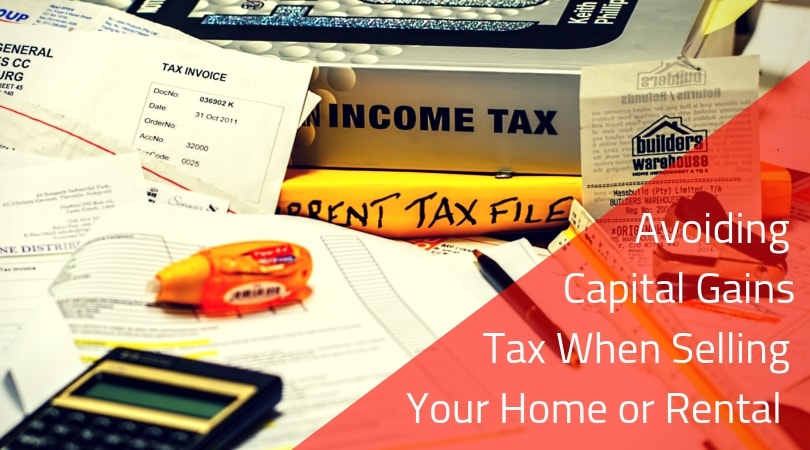If you sold your property within the last 180 days, you can reinvest that capital gain and defer and reduce the tax you’ll have to pay at filing time. If the income results from the sale of assets in a partnership filing K-1, the 180 days runs from the end of the calendar year.
In this article, we’ll give you a concise overview of what opportunity zones are, how to get started investing, and why and how you might want to create your own qualified opportunity zone investment fund (QOF).
What Are Opportunity Zones? How Do They Protect My Capital Gains?
If you’ve recently realized capital gains (made a profit) from the sale or transfer of personal or partnership assets and you’re facing the payment of a large tax liability to the IRS – current capital gains taxes range as high as 20% depending on your income– opportunity zones allow you to put off or defer paying taxes as long as the investment is held in the QOF.
The Tax Cuts and Jobs Act of 2017 (TCJA) created the opportunity zone program to provide a financial incentive to investors for allocating capital to economically disadvantaged communities. The Act created more than 8700 designated qualified opportunity zones (QOZs)
What exactly are the benefits of investing in opportunity zones?
- You can earn strong returns and pay no more than the original deferred tax (reduced by incremental step-ups in basis).
- 10% step-up in basis after 5 years. Pay tax on only 90% of original gain.
- 15% step-up in basis after 7 years. Pay tax on only 85% of original gain.
- Complete elimination of tax on post-investment capital gains after 10 years.
- Pay tax on only 85% of original gain if held more than ten years. No tax on subsequent gain.
- You can invest in business or real estate assets.
Investing in opportunity zones allows you to protect your retirement and heir’s inheritance from excessive taxation by the federal government.
If you’re willing to commit to a 10-year investment, you can reduce your tax basis by 15%, and pay no capital gains tax on any new gain.
How Do I Get Started Investing in Opportunity Zones?
The first consideration is finding a QOF. Per the TCJA, QOZ investments must be made through a QOF.
There are two ways to approach this: you can either invest with an existing QOF or create your own by self-certifying with the IRS using form 8996.
Working with an existing QOF is a good choice if you’re looking for professionally-managed investments that won’t require you to be personally involved in property or asset management.
If you want more control over your money and investments, it’s not too difficult to self-certify as a QOF.
Now, the list of qualifications/requirements is a bit intimidating, but here’s a brief summary–consult an investment advisor and accountant:
- 90% of the funds assets must be held in opportunity zones.
- Eligible entities include corporations, partnerships, and LLCs (those treated as a partnership or corp for tax purposes).
- Self-certify with form 8996. No application or approval requirement.
- QOF assets must be placed into service in a QOZ for the first time by the QOF, or
- Be ‘substantially’ improved within 30 months.
Tips For Aspiring and Professional Opportunity Zone Investors
If you have capital gains to reinvest and the tax benefits are something that fit your financial and tax needs, you’ll need to proceed with caution before making a pledge.
Take care in researching, interviewing, and reviewing the offering memorandums of the QOFs you consider. Select a fund that specializes in the types of assets in which you’re most interested and that has a track record in QOZ investments or business and real estate development.
Creating your own QOF sound most appealing? Do your homework, evaluate your relevant experience, skills, and enlist the counsel and aid of real estate, legal, finance and other associated professionals to lend capability and credibility to your team.
Finally, inclusion in an opportunity zone doesn’t mean a great investment. Evaluate the market based on population growth, rental rate trends, quality educational institutions, strength of industry, zoning policy, and numerous other economic, regulatory, and social considerations.
Once you find a property or investment, conduct the same due diligence in assessing its condition, cash flow, and functional utility (livability and usefulness for modern buyers). Depending on the QOF, you can invest in an individual property or portfolio of units.
Time is of the Essence
Take action now to research your options if you need capital gains tax relief. You have a limited period from when gains are realized until they must be contributed to qualify for the tax-deferral benefits.
Depending on your background and how involved you want to be in the investment, you can either invest in an existing QOF or start your own and self-certify with the IRS.
Whichever path you choose, do your due diligence and select an investment based on the factors that you would consider for any traditional opportunity. When you choose a QOZ investment in a market with strong rental demand, favorable local policy, and economic growth, you’ll have a stable-return asset that shelters your existing and long-term gain.












